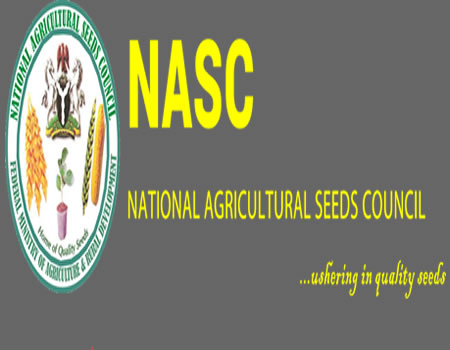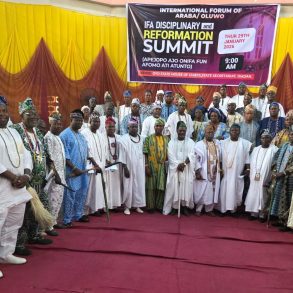NATIONAL Agricultural Seeds Council (NASC) has trained Licensed Seed Inspectors (LSI) to enforce the use of quality cassava seed towards food security in Nigeria.
Director, NASC, Dr Ishiak Khalid, speaking during the opening ceremony of the 2-day training in Ibadan, the Oyo State capital,said the programme was s in collaboration with International Institute of Tropical Agriculture, (IITA).
The training workshop was tagged: ‘Building an Economically Sustainable Integrated Cassava Seed (BASICS-ll) for Cassava Licensed Seed Inspectors’
OECD NASC About N40m vegetable seeds destroyed over poor packaging, false information, There cant be food security, NASC writes salary wages, Nigeria supplies over 50% seeds,NESG unveils the Plant, For high-quality seeds, NASC launches scheme to monitor crop NASC to deploy seed trackers, NASC Seed, seedcodex, DG, market
Khalid, who was represented by the South-West Regional, coordinator, NASC, Dr Adekunle Adeseko, said the council had set the pace in cassava seed certification in West Africa.
He stated that it had been improving its efficiency through the adoption of seed tracker in digital certification, especially in cassava.
Khalid, however, charged the LSI to be up and doing in ensuring compliance to seed quality, noting that the council had been abreast of the activities of informal seed entrepreneurs.
Speaking on the challenges in cassava certification in the South-West, the way forward, Khalid said there was low patronage on seed tracker by new seed entrepreneurs.
“We know in the South, NASC is in the process of integrating the newly – licensed cassava growers and processors as they are yet to fully grasp the need to register their cassava seed field on the seed tracker for quality assurance.
“Another challenge is the sourcing of ‘cassava seed’ from Informal Seed sector.
“Cassava propagating material move from one place to another either as farmers exchange or unchecked due to weak seed law enforcement compounded by logistics at the community and without recourse to its health status,” he said.
The DG noted that awareness creation was a way out of the challenges.
According to him, the council had paucity of funds to upscale the level of awareness on the need to propagate cassava using seeds instead of stem from old plants meant for root production.
Khalid commended collaborations such as the one with Bill and Melinda Gates Foundation which had been supporting the realisation of the objective of the council.
The desk officer, Basics-ll, NASC, Dr Bankole Osho-Lagunju, said decentralising seed quality assurance was a new paradigm that NASC was looking at because of the shortage of manpower for the number of seed producers in the nation.
“Having trained personnel like this will complement NASC officers, bring quality assurance closer to the people and make it more responsive as well as creating income for those engaged,” he said.
In his goodwill message, zonal coordinator, Nigerian Stored Products Research Institute (NSPRI), Ibadan Zonal Office, Dr Shuaeeb Oyewole, highlighted the importance of planting high yielding seeds that would give optimal harvest.






